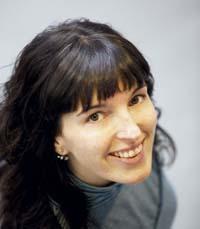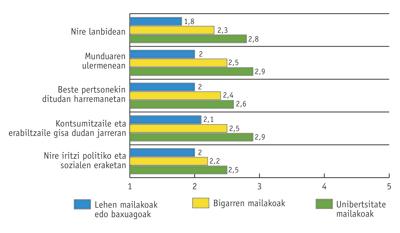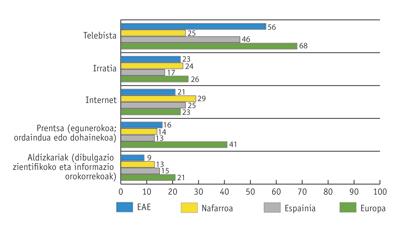Science and technology in the eyes of Basque society
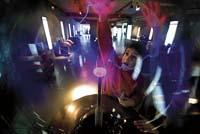
Thirty years ago, in Europe, surveys were conducted on the social perceptions of science and technology. In Euskal Herria, however, the place occupied by science and technology in society had never been studied.
With the aim of covering this gap, the Elhuyar Foundation, together with the Sociological Prospecting Cabinet of the Basque Government, began in 2008 the work "Scientific and technological representations in Euskal Herria (2008)". In fact, "In recent years the need to know the public opinion has grown," said Andoni Eizagirre, professor at Mondragon Unibertsitatea and author of the study. According to Eizagirre, this type of research work helps to identify and interpret what causes society to have one or another attitude, in this case to science and technology.
A part of the research work consisted of meeting people in discussion groups or conducting interviews to talk about different topics of debate related to science and technology. In the belief that one or another discipline in matters of science and technology was to be the subject of some or other observations, society was divided into three groups, on the one hand, attending to the ordinary population of the whole Basque Country, by the students and researcher in science and technology, by the students in human and social sciences, and finally, by specialists in science and technology. Discussion groups were formed with the first two groups and the opinion of the experts was collected through interviews.
However, that was where the first surprise occurred: "Research has shown that the differences are less than expected," says Eguzki Urteaga, a sociologist at the UPV, a discussion group and one of the researchers who led interviews with experts. This shows, for Urteaga, that "society has a level of knowledge but does not use it."
Both in the discussion groups and in the interviews, qualitative results have been obtained. Along with this, the study had two other parts. On the one hand, they have obtained quantitative data on social perception. For this purpose, the Spanish Foundation for Science and Technology (FECYT), in collaboration with the CIS, carried out in 2006 the 3rd Social Perception of Science and Technology. They have used the information collected in the National Survey. In particular, the CAPV and Navarre have collected the surveys carried out to four hundred people. On the other hand, the Elhuyar Foundation analyzed in 2008 the presence of issues related to science and technology in the press of the Basque Country (the results of this study were published in the November 2008 issue of Elhuyar Zientzia eta Teknika).
One of the main conclusions that can be drawn from these studies is that society in general extolls science and technology. In the discussion groups it has been collected, for example, that thanks to the new sciences and technologies, we have a much more comfortable life, a greater life expectancy and a much better communication capacity. People believe that research and development are fundamental to the development and well-being of peoples.
Scientists are also among the most valued groups in society. In fact, in the surveys carried out in the ACBC and Navarre, it is observed that the professions related to science occupy the top three positions in the list of most valued professions: doctors occupy the first place, with an average rating of 4.4 points on a scale of 1 to 5, while scientists and engineers occupy the second and third, with 4 points and 3.8 points, respectively.
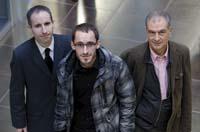
The other side of the coin in sight
Despite their praise and social function, science and technology also see less positive and dangerous aspects. Eizagirre has found the ambivalent attitude remarkable: "The discussion groups show opposing views". It is commented, for example, that research has gone too far in fields such as human cloning or the manipulation of embryos. People believe that some ethical limits have been overcome.
They point out that it is essential that citizens keep the distance and critical spirit in the face of science and technology, and that there is always to measure bonuses and costs. The terms used by the population to express the damage caused by science and technology are: dependence, manipulation, speed, stress, etc. They point out, for example, that through advertising and marketing, many brands generate needs in citizenship. "We don't give up buying, we are trapped and we don't see any way out," says one participant. They unanimously indicate that in the discussion groups we are turning on a crazy wheel.
Citizenship also feels that science and technology have accelerated and densified time. At any given time, more work, activity and relationship can be done. But that makes us think that we have little time for anything.
On the other hand, it has been shown that sometimes it is very difficult to foresee what consequences innovations can have. In general, 41.5% of the surveyed population considers that the benefits reported by science and technology are greater than the damage. 37.5% points out that the benefits and losses are comparable and 8.5% that the damage is greater than the benefits. The remaining 13% did not answer the question because they did not have a clear opinion or for another reason.
Researchers, worse than elsewhere
All advances in science and technology are made by scientists. The desire to understand the world, to find new things, to feel the gratitude of society and to make money, among other things, lead people to become a scientist and to devote themselves to research. This is believed by people who have been classified as a general public, and that is what both university students and researchers have recognized.
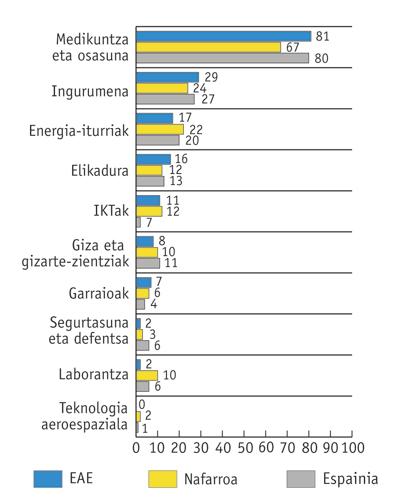
However, people believe that the vocation and spirit of the first moment of researchers is weakening, because politicians do not give the importance that science, technology and innovation deserve. Unanimously, both ordinary citizens and researchers and experts, affirm that scientific research should be the priority of governments, since so far they have been granted secondary importance. And they see science and research involved in our culture.
In addition, they mention that the fashion issues when granting the financing are the ones that have the most weight, the ones that send the immediate thing and the benefits that the investigations will report. All stand out the contempt of basic research.
For all this, they believe that researchers want to go abroad. In general, it is considered that foreign countries, especially Europe and the United States, invest more money in science and technology and that the research system is better organized. People believe that in Euskal Herria the working conditions are very precarious for researchers, and also researchers have the pressure to obtain results.
Experts have added other problems to scientific policies. On the one hand, they consider that there is no coordination when distributing resources. They consider that lately technology centers have had a lot of resources and universities have not. They believe it is an error. On the other hand, they denounce that there are many sources of income and that research groups lose a lot of strength and time in asking for grants. They say that laboratory managers spend more time on reporting and other administrative work than on research and advice to researchers.
Change, essential, essential
Faced with this situation, society demands a restructuring of scientific policies. Changes should be directed towards the well-being, stabilization of research, and safety of researchers. Thus, non-profitable areas should also be considered.
And people believe that "not investing in science and technology is not believing in the future" and "conditioning the future of new generations." That is, they underline that public money needs to be managed with rigor and not wasted in any way.

One of the experts has indicated that Euskal Herria has a great capacity for transformation, among other things because it is a small country. And in the ACBC there is a point of optimism; the population believes there are indications of change. That is, organizations have realized the new challenges and challenges and have begun to bet on promoting the research of science and technologies. Specifically, they mentioned Innobasque and, in particular, Ikerbasque as an example of change.
In Navarre and Iparralde, for their part, they have been renovated. In the North Basque Country, moreover, they see administrative changes as essential for the advancement of science and technology. In fact, they consider it fundamental that there is a university in the Basque Country.
It is noteworthy that before all of them were said, people recognized that they had not enough knowledge: the people of the street declared that they had little scientific and technological knowledge, and as for scientific policies, that lack of knowledge was recognized by both ordinary citizenship and by researchers and students. Likewise, in the surveys, 52% of the population points out that their knowledge in science and technology is very low or low.
Below were eleven examples, reviews and reviews. "At the end of the discussion sessions, people realized that they talked more about what they thought and knew more than they thought," said Urteaga, a professor of sociology at the UPV. "In this sense, personal assessments were positive."
In short, "people have more and more levels of education and increasingly read more," explains Urteaga. There and here people read and listen to the issues related to science and technology, and "little by little they accumulate knowledge," he says.
Administrative distribution at sight
People say that, to a greater extent, they receive information related to science and technology through television. And in that sense, the possibilities of seeing programs on science and technology in Hego Euskal Herria and Iparralde are clearly different.

The discussion groups of Iparralde have mentioned several television and radio channels among which they offer content of good level and quality, such as the television networks France 5 and Arte, and the radio stations France Inter and France Culture. In Hego Euskal Herria they have only referred to specific television programmes such as Teknopolis. And yes, it has already been mentioned that people know the program, but don't see it too much.
For this reason, facing the future, Urteaga considers that it would be interesting to analyze the territories separately. "The opinion of individuals on science and technology is closely related to their institutions, the education system, the media, etc."
It is interesting to show reality and to know the presence of science and technology in society. "However, the work done should not only serve to increase knowledge," says Urteaga. "The goal should be to use this diagnosis to adapt public policies and help decide which direction to take."
Otherwise, Eizagirre considers that there is a risk that "over time the positive perception of science will be diluted. Now, citizenship distinguishes between science and science and its social "context", but it remains to be seen how it will evolve over time."
